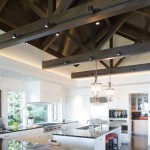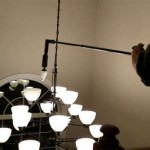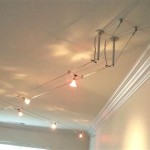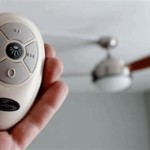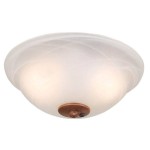Essential Aspects of Drop Ceiling Office Lights
Drop ceiling office lights, also known as suspended ceiling lights, are an essential component of any modern office space. They provide efficient and customizable lighting, enhancing both productivity and the overall ambiance of the workplace. Here are the key aspects to consider when selecting and installing drop ceiling office lights.
1. Light Output and Distribution
The light output of a fixture determines its brightness, measured in lumens. The amount of light needed in an office space will depend on the size and specific activities performed within it. For general office work, a light output of 300-500 lumens per square meter is recommended. The distribution of light also matters, with indirect and semi-indirect lighting being preferable for reducing glare and creating a more comfortable work environment.
2. Color Temperature
The color temperature of a light source is measured in Kelvins (K) and indicates its perceived warmth or coolness. Warm white light (2700K-3000K) creates a cozy and inviting atmosphere, while cool white light (4000K-5000K) promotes alertness and concentration. Natural white light (6500K) is similar to daylight and can reduce eye strain.
3. Energy Efficiency
Energy efficiency is a crucial factor to consider, especially in commercial spaces with high energy consumption. LED drop ceiling lights are the most energy-efficient option, consuming up to 80% less energy than traditional fluorescent lights. They also have a longer lifespan, reducing maintenance costs and waste.
4. Fixture Design and Installation
Drop ceiling office lights come in various designs, from simple square or rectangular panels to sleek architectural shapes. The design should complement the office aesthetic and diffuse light effectively. Installation involves suspending the fixtures from the ceiling grid using T-bars or wire hangers. Ensure that the fixtures are properly secured and leveled for optimal performance and safety.
5. Dimming and Control
Dimmable drop ceiling lights allow for adjustable lighting levels, creating a more versatile and comfortable space. Dimming can help reduce eye strain, improve sleep quality, and create a more inviting atmosphere for meetings or presentations. Wireless control systems can be integrated for convenience and centralized lighting management.
6. Acoustic Performance
Acoustic drop ceiling lights combine lighting with sound absorption. They are made from sound-dampening materials that help reduce reverberation and create a more comfortable acoustic environment. This is particularly beneficial in open-plan offices or spaces where noise levels can be high.
7. Maintenance
Regular maintenance is essential to ensure the longevity and optimal performance of drop ceiling office lights. This includes periodic cleaning to remove dust and debris, as well as bulb or LED module replacement as needed. Proper maintenance helps prevent premature failure and ensures consistent lighting quality.
Conclusion
Drop ceiling office lights play a vital role in creating a productive and enjoyable work environment. By considering factors such as light output, distribution, color temperature, energy efficiency, design, control, acoustics, and maintenance, businesses can optimize their lighting systems for improved performance and well-being.

Drop Ceiling Integrated Office Lighting Goldeneye Inc

Top 3 Ideas To Light Up Your Ceiling Saint Gobain Gyproc

Office Lighting Brandon Linear Led Manufacturer

13 Office Ceiling Panel Design Ideas That Are Anything But Basic Arktura

Drop Ceiling Lights Commercial Led

Converting Drop Ceiling Fluorescent Light To Led 12 Steps With Pictures Instructables

Drop Ceiling Lights Commercial Led

Drop Ceiling Light Fixtures A Better Alternative Office Led Lighting

New Design Office Led Pendant Circle Lamp Aluminum Curved Profile Suspended Ceiling Light China Ring Made In Com

Office Ceiling T Bar Grid Goldeneye Inc
Related Posts

